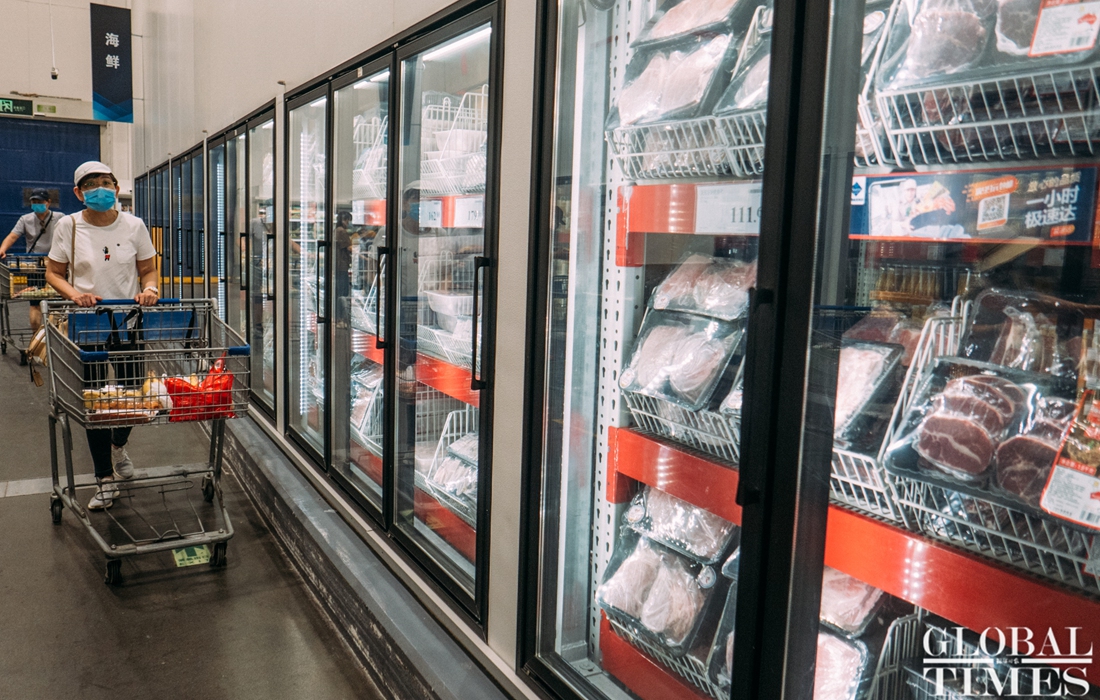Coronavirus responsible for Beijing COVID-19 outbreak was imported: CDC expert
Source:Globaltimes.cn Published: 2020/6/16 1:31:49

Photo: Li Hao/GT
Preliminary findings indicate that the virus of the new COVID-19 outbreak detected in Beijing was imported. The strain originated in Europe, but that doesn't mean the virus came from a European country and it is not sure that salmon is the source of the spread, said a Chinese expert on Monday.
Wu Zunyou, chief epidemiologist at the Chinese Center for Disease Control and Prevention, said in an interview with People's Daily on Monday that controlling the outbreak is the most urgent task.
It is urgent to find out how widespread the infection is by identifying all those who have been infected as soon as possible, and to take measures to limit the virus' spread from infected people, Wu said.
The investigation of the source of the virus is ongoing. A preliminary investigation shows that it did not originate in Beijing, but how it was imported has yet to be determined, said Wu.
The virus is dissimilar to the strain that appeared in Beijing two months ago, and appears to be more like the strain that has ravaged Europe. However, this doesn't necessarily mean that the virus came from a European country.
Analysis of coronaviruses in the US show that most come from the European strain. Most of Russian cases also originated from the European strain.
Tests in Wu's laboratory indicate that the strain originated in Europe. It may have come from a European country or from countries in the Americas. Further information needs to be gathered before a final determination can be made.
Wu also said it cannot be determined that salmon is the source of the spread, although coronavirus was found on a chopping board used to process imported salmon at Beijing's Xinfadi wholesale market.
The sampling of the market's environment is still underway, and comprehensive environmental testing results are needed to inform the investigation, said Wu.
A positive virus on a salmon board suggest the board was contaminated. Market staff or customers could have spread the virus on the chopping board as they chatted.
Wu said local hospitals need to be prepared. "Anti-epidemic measures should not be weakened at all, and all measures should be made more stringent," he noted.
Wu believes there is no need to restrict travel to Beijing for now. Beijing has a large area and a large population, and the new cases have so far only been found in a limited area.
"We have always advocated precise prevention and control, which means that the areas we have identified should be precisely targeted. Outside of these areas, it's safe," Wu said.
"There is no need to quarantine or restrict people from coming to Beijing for business or travel to low-risk areas," he noted.
Posted in: SOCIETY